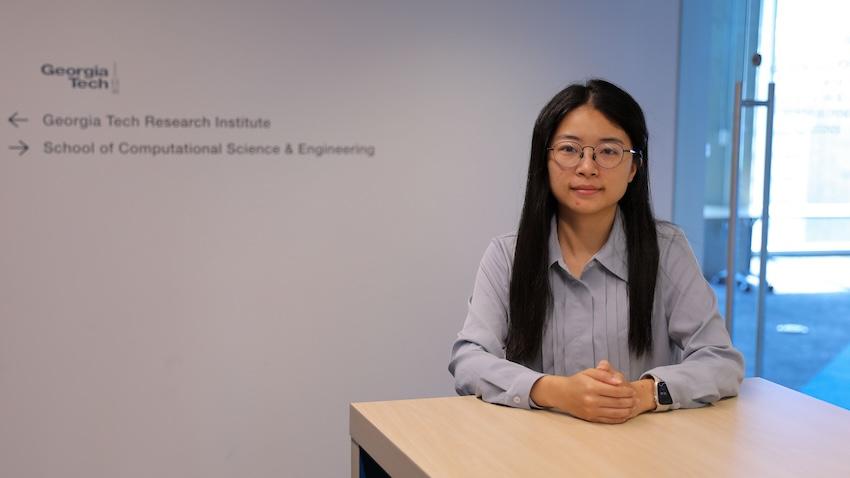
New Faculty Pluses School’s Expertise in Neuroscience and Artificial Intelligence
Two new assistant professors joined the School of Computational Science and Engineering (CSE) faculty this fall. Lu Mi comes to Georgia Tech from the Allen Institute for Brain Science in Seattle, where she was a Shanahan Foundation Fellow.
We sat down with Mi to learn more about her background and to introduce her to the Georgia Tech and College of Computing communities.
Faculty: Lu Mi, assistant professor, School of CSE
Research Interests: Computational Neuroscience, Machine Learning
Education: Ph.D. in Computer Science from the Massachusetts Institute of Technology; B.S. in Measurement, Control, and Instruments from Tsinghua University
Hometown: Sichuan, China (home of the giant pandas)
How have your first few months at Georgia Tech gone so far?
I’ve really enjoyed my time at Georgia Tech. Developing a new course has been both challenging and rewarding. I’ve learned a lot from the process and conversations with students. My colleagues have been incredibly welcoming, and I’ve had the opportunity to work with some very smart and motivated students here at Georgia Tech.
You hit the ground running this year by teaching your CSE 8803 course on brain-inspired machine intelligence. What important concepts do you teach in this class?
This course focuses on comparing biological neural networks with artificial neural networks. We explore questions like: How does the brain encode information, perform computations, and learn? What can neuroscience and artificial intelligence (AI) learn from each other? Key topics include spiking neural networks, neural coding, and biologically plausible learning rules. By the end of the course, I expect students to have a solid understanding of neural algorithms and the emerging NeuroAI field.
When and how did you become interested in computational neuroscience in the first place?
I’ve been fascinated by how the brain works since I was young. My formal engagement with the field began during my Ph.D. research, where we developed algorithms to help neuroscientists map large-scale synaptic wiring diagrams in the brain. Since then, I’ve had the opportunity to collaborate with researchers at institutions like Harvard, the Janelia Research Campus, the Allen Institute for Brain Science, and the University of Washington on various exciting projects in this field.
What about your experience and research are you currently most proud of?
I’m particularly proud of the framework we developed to integrate black-box machine learning models with biologically realistic mechanistic models. We use advanced deep-learning techniques to infer unobserved information and combine this with prior knowledge from mechanistic models. This allows us to test hypotheses by applying different model variants. I believe this framework holds great potential to address a wide range of scientific questions, leveraging the power of AI.
What about Georgia Tech convinced you to accept a faculty position?
Georgia Tech CSE felt like a perfect fit for my background and research interests, particularly within the AI4Science initiative and the development of computational tools for biology and neuroscience. My work overlaps with several colleagues here, and I’m excited to collaborate with them. Georgia Tech also has a vibrant and impactful Neuro Next Initiative community, which is another great attraction.
What are your hobbies and interests when not researching and teaching?
I enjoy photography and love spending time with my two corgi dogs, especially taking them for walks.
What have you enjoyed most so far about living in Atlanta?
I’ve really appreciated the peaceful, green environment with so many trees. I’m also looking forward to exploring more outdoor activities, like fishing and golfing.


